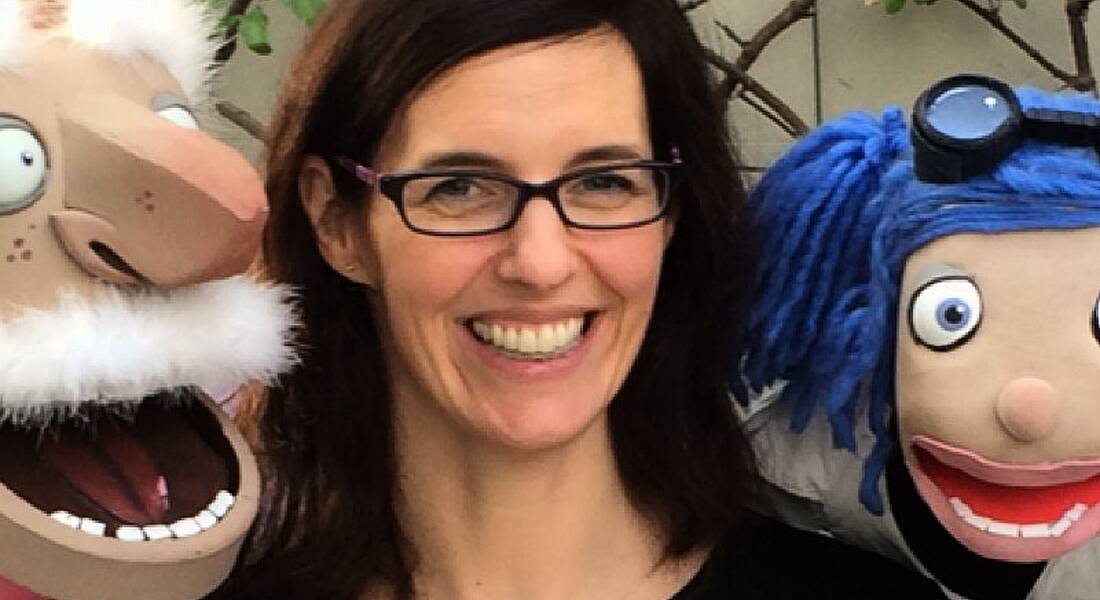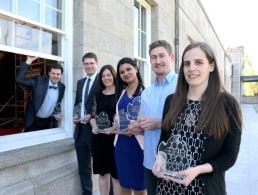Students often choose third-level subjects because they perceive them to be a good fit, so Smart Futures wants more STEM role models to visit schools.
Do you work in the field of STEM? Then you (yes, you) can play your part in encouraging school students to be more aware of careers and opportunities in your area. That’s according to Margie McCarthy, head of education and public engagement with Science Foundation Ireland.
Role models — and particularly female role models — in STEM could play an important role in making students and their parents more STEM-aware, and SFI’s Smart Futures initiative is out to make that happen.
The nationally coordinated collaborative programme between industry, Government and education, which is managed by SFI Discover and coordinated in partnership with Engineers Ireland, seeks to get role models talking to school students, explains McCarthy, who took up her post with SFI in March 2014.
Fitting in
Through the role models programme and through online resources such as career profiles, Smart Futures aims to boost the uptake of STEM subjects at secondary school level by 10pc by 2018 and more generally to increase awareness of STEM among students and parents.
McCarthy was particularly struck by the findings of a recent survey, carried out by Amárach Research as part of the Smart Futures programme, of 2,000 first-year undergraduate students in Ireland (48pc of respondents were STEM students while 52pc were non-STEM). It found that the big factor influencing CAO choice is whether the students feel they will “fit in”.
“When we asked students ‘what were the factors that influenced your choices?’, 62pc said their number one reason for picking their course was that they would fit in,” says McCarthy. “Another major finding was that where parents had influenced choice, the parents often told them that the subject would suit their personality.”
Role models
Getting role models into classrooms to talk about their work in STEM could help students become aware of the opportunities that STEM subjects offer, notes McCarthy.
In 2014, Smart Futures engaged with around 26,000 secondary school students through its channels and, in the current academic year, STEM volunteers have delivered more than 250 free STEM career talks in schools around Ireland.
Role models are particularly important for female students to identify with STEM, she adds “We are not saying that role models are going to solve everything, but a big part of even opening your eyes to the possibility is knowing that you can identify yourself with it.”
Engineering familiarity
Seeing the survey results drove home to McCarthy how her own family environment influenced her choice to study engineering. “I came from a family where there was a huge amount of engineering and I was very influenced by that in my decisions, so yes it was really important to me that I knew the people who went in there and that I identified with it.”
Now she wants people who are working in STEM to help create more awareness of what they do — and particularly women who are working in the field. “We are busy with our work lives and maybe we don’t see our responsibility in trying to create greater role models in Ireland,” she says. “But we are such a small minority [of women in STEM], and we need to increase that number.”
Call for volunteers
The strength of the Smart Futures programme is the time that volunteers donate, according to McCarthy, and a new booking system expected to be rolled out later this year should make it even easier for schools and volunteers to sign up.
Volunteers avail of a training session through the programme that helps them to know their audience. “It’s about being able to talk to a teenage audience when you are used to talking to peers and clients, or talking to a parent audience,” explains McCarthy. “It’s about knowing how to pitch your message and thinking about what they are interested to hear.”
The idea is to inspire students to get involved in what they enjoy and to make more informed decisions about their subjects, and the role models often find they get plenty of reward from the experience.
“Having a group of kids go ‘wow’ at what you do is amazing,” says McCarthy, who saw and met plenty of exceptional role models at Inspirefest 2015 last week. “It struck me what amazing role models there are, and how we all have a part to play,” she says.
Women Invent is Silicon Republic’s campaign to champion the role of women in science, technology, engineering and maths. It has been running since March 2013, and is kindly supported by Accenture Ireland, Intel, the Irish Research Council, ESB, Twitter, CoderDojo and Science Foundation Ireland.
Inspirefest is Silicon Republic’s international event connecting sci-tech professionals passionate about the future of STEM with fresh perspectives on leadership, innovation and diversity.




